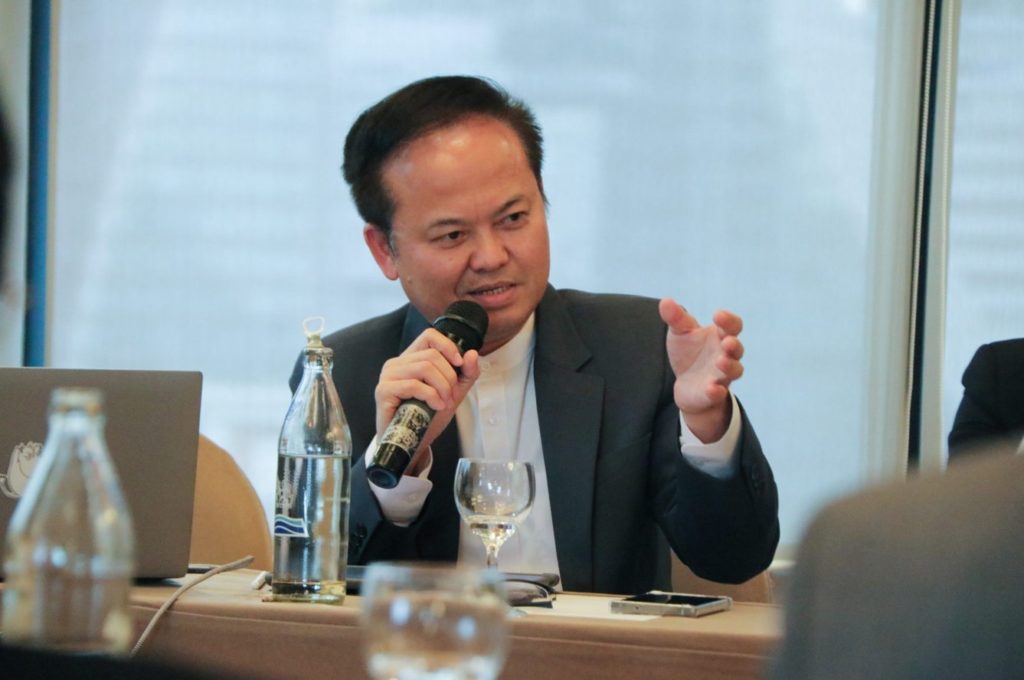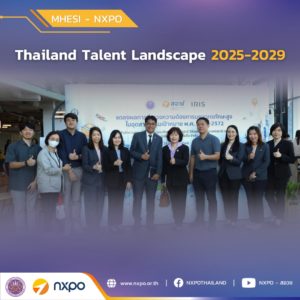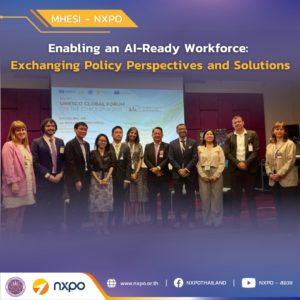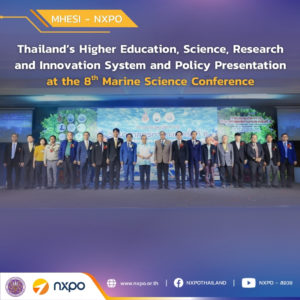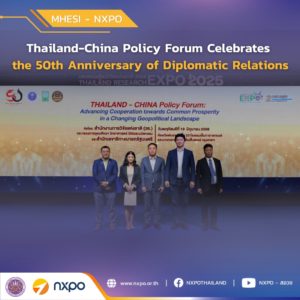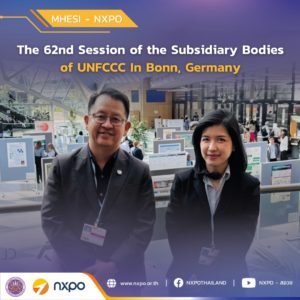NXPO and the Council of Scientific and Technological Associations of Thailand (COSTAT) recently hosted a consortium meeting to design initiatives aimed at fostering S&T education for sustainable future. The meeting, which took place on 23 November 2023, was designed to review findings and recommendations derived from the joint study conducted by NXPO and COSTAT on S&T education for sustainable future, identify potential initiatives along with their driving mechanisms, and construct an S&T policy to promote S&T education for sustainable future.


During the meeting, NXPO President Dr. Kitipong Promwong delivered a presentation on higher education, science, research and innovation policies to promote S&T education for sustainable future. He outlined three main target groups for the S&T education promotion:
- Influencers: This category involves a small but vital group, including politicians, marketing experts, scientists, technologists, and policy and decision makers such as the prime minister, ministers, house representatives, etc. A grand vision in S&T must be created for this group to establish actionable policies.
- Leaders: This group includes leadership in the public and private organizations, as well as communities. They are crucial to policy deployment, and the strategy to raise awareness in S&T education among this group involves engagement, such as forming collaborations to demonstrate how S&T can support their organizations.
- General public, including students: This is by far the largest group in the society. The importance of S&T education is demonstrated through upskilling and reskilling programs, emphasizing how S&T knowledge can broaden their employment prospects. In this regard, NXPO has released a study report on future skill sets demanded in the twelve target industries.

Dr. Kitipong also elaborated on five areas of focus in the current science, technology and innovation (STI) plan:
- Economic growth: STI are vital to the development of high-value industries such as future food and electric vehicles.
- Entrepreneurship: Thailand sets a target to achieve 1,000 IDEs (Innovation Driven Enterprises) with an average revenue of THB 1 billion to 1,000 companies. In addition, several universities have established holding companies to encourage business development and spinoffs among faculty members and students.
- Social mobility: Technologies and innovative solutions are introduced to support income generation, thereby enhancing individuals’ socio-economic status.
- Sustainability: STI for sustainability aims to achieve carbon neutrality and net zero emissions, contributing not only to resource sustainability, but also to trade and investment.
- Human resources development: Human capital is a valuable asset to drive all development. Human resources development is focused on higher education transformation with initiatives such as the higher education sandbox scheme. The Bachelor of Engineering Program in Computer Engineering and Digital Technology at Chulalongkorn University, one of many sandbox programs, is structured into certification modules, enabling students to earn a certificate upon completing each module, making them immediately employable. Students no longer need to commit to the four-year program in order to get a job and can return for degree completion by accumulating credits.


Following the plenary session, eight brainstorming sessions were held concurrently to design the following development models: 1) A sustainable model for oyster farming, processing and value creation of oyster shell; 2) A circular-economy model for animal husbandry with the focus on new economic livestock such as sheep and goats; 3) A circular-economy model for dairy farming; 4) A model for community herbal products manufacturing; 5) A model for integrated highland agriculture for forest conservation; 6) A model for introducing bamboo as a new economic crop; 7) A model for transitioning from a low-carbon to net-zero university; and 8) A model for creative schools teaching sustainability and earth/geo science.
In addition, a separate executive roundtable was organized to discuss the following issues concerning initiative implementation, namely 1) area-based analysis, 2) community engagement and network establishment, 3) turning initiatives into a strategic agenda with clear working mechanisms; 4) selecting technologies appropriate to the industry and area; and 5) developing project sustainability by collaborating with partners, universities and beneficiaries.
